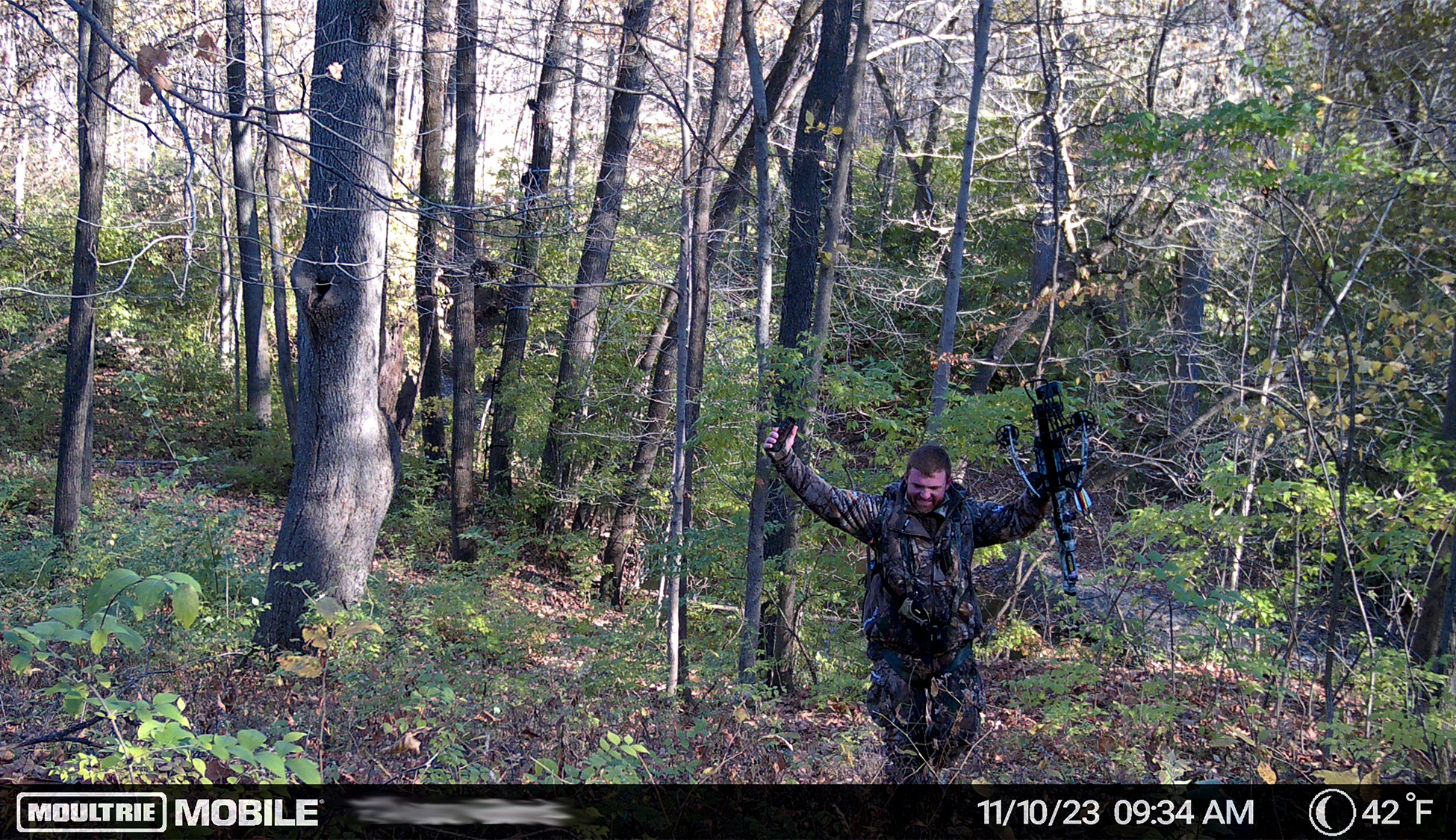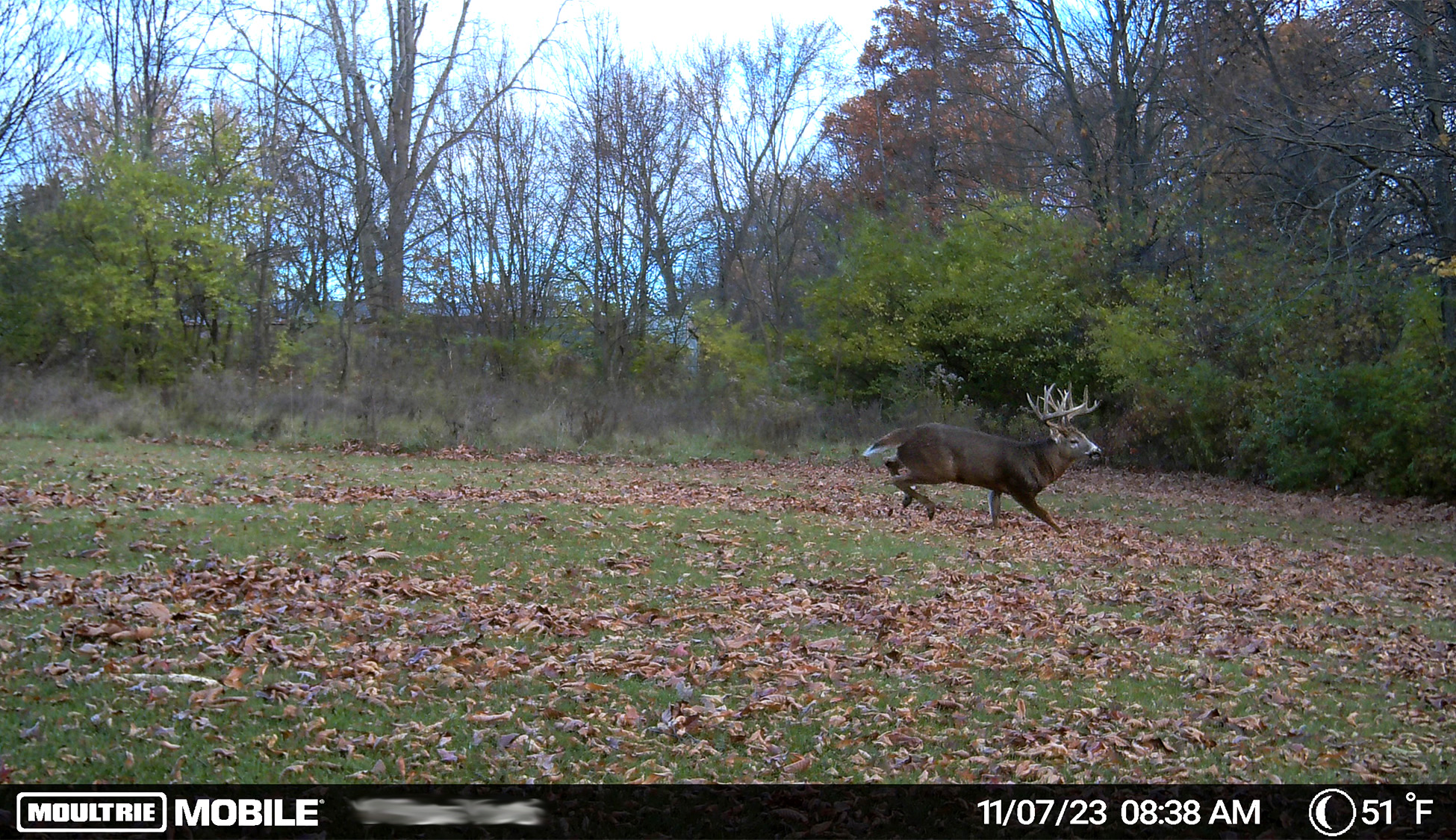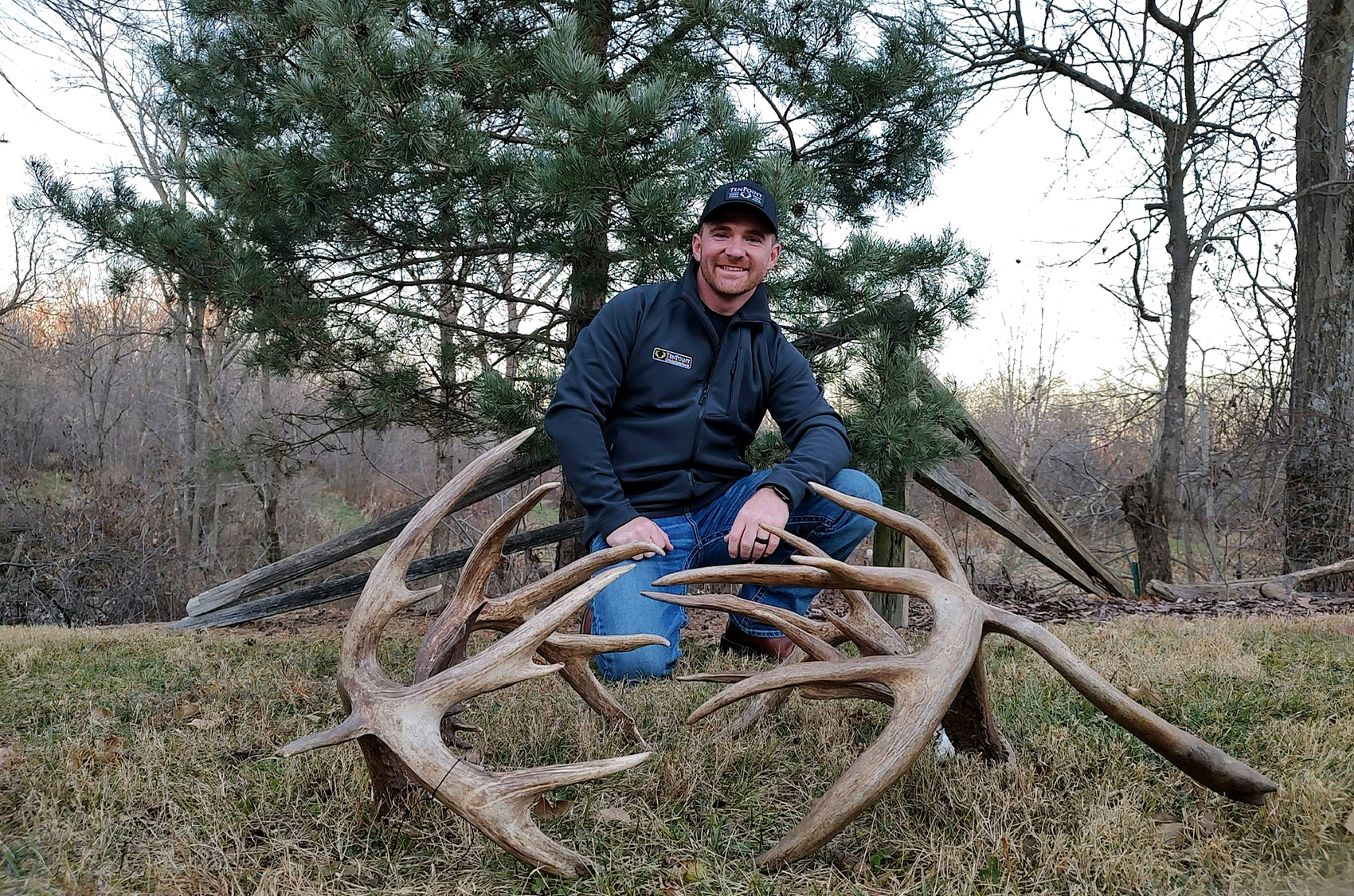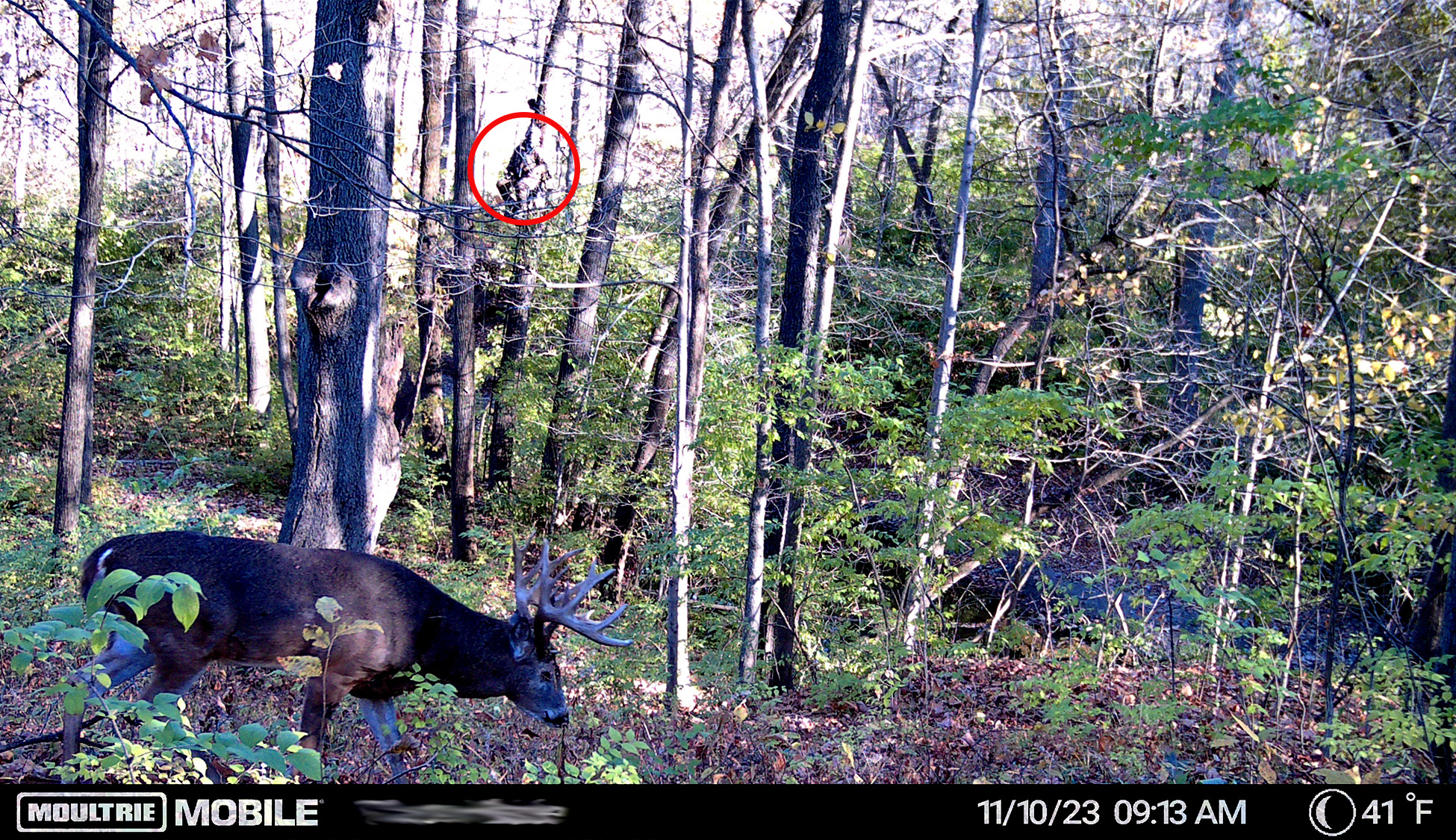Randy Kukral decided it would be best if he had company to recover his most recent deer, a 220-inch Ohio slammer he dubbed “Trifecta.” But Kukral didn’t get in touch with a buddy or a family member. He called a local game warden instead.
The deer hadn’t run onto an adjacent property, and the legality of Kukral’s hunt was never in question. Kukral simply didn’t want to deal with people speculating that he must have poached it. This isn’t because no one would believe he killed Trifecta — but because it was his third 200-plus-inch deer in as many years.
“After all the chatter after my second one, I wanted to make sure that the game warden came with me to recover the deer,” says Kukral, a pro bass angler who competes in the National Professional Fishing League. “I have not heard one peep of poaching since I did that.”
It’s easy to see why people thought Kukral must be up to something. Three 200-plus-inch free-ranging deer in three years is all but unheard of, and to Kukral’s knowledge, it’s never been done before he pulled it off. So what are his secrets to success? Outdoor Life caught up with Kukral to learn how he tags such impressive whitetails, year after year. Here are six keys to his recent run of success in the whitetail woods.
1. Be All Kinds of Patient
Patience is a virtue, particularly when it comes to deer hunting. But there are different versions of patience: long term, middle term, and short term. In Kukral’s years of hunting whitetails, he cites all three as mission critical.
Kukral, who lives and hunts in Ohio, points to a small parcel of family land that was clear cut in the 1990s as an example of how long-term patience can reward the hunter and land manager. Through careful management, strategic development of food plots, and two decades of patience, Kukral and his family have stewarded the land into what it has become today.
“It turned into a buck producer,” Kukral says. “These [200-plus-inch] deer in particular were not off that property, but it has produced multiple Boone and Crockett bucks.”
In the mid-term, he points to the deer he dubbed “Diesel,” which kicked off his three-year run of 200-plus-inch whitetails back in 2021.

“That deer was probably 2.5 [years old] when I first saw him. He was 160, then 180, then the next year 210,” Kukral says. “[When I first saw him] he looked like a puppy with a huge rack on his head. I shot him when he was probably 5.5.”
As for short term patience, Kukral says it all comes down to picking the right days to hunt.
2. Hunt with Intention
Kukral doesn’t hunt just to hunt. He picks his spots and goes in with the intention – and often the expectation – of being successful. It’s this intersection of patience and strategy that’s paid dividends.
Kukral’s 2022 deer, one that he calls “Drop Tine,” is a case study in picking your days. Despite having a good sense of where Drop Tine spent most of his time, Kukral gave the deer space for most of the season until the buck started showing up on his trail camera.
“I didn’t hunt that area [for most of the season],” Kukral says. “I had 170-inch deer walking past my stand every day, and I didn’t sit until Nov. 13 when I finally had that deer coming by.”
With a cold front in the forecast and a couple pictures of the buck in hand, Kukral knew it was finally time to make his move.
“The biggest key to my success was that a front had just come through and I felt like that kicked him into gear,” Kukral says. “I knew that day was going to be special. I went into that stand at about 2 p.m. and as soon as I got in, I started seeing deer. At about 3:45 he came in.”

The buck scored 232 inches, according to the Buckmasters scoring system. (All three of his 200-plus inch bucks were measured by official Buckmasters scorers using BTR’s “Full-Credit” system, which adds up every inch of antler and does not recognize nontypical features or make deductions of any kind.) He killed it by hunting with intention on the right day under the right conditions. He made a plan and then executed it.
3. Use Pressure to Your Advantage
Kukral knows as well as anyone that one of the most frustrating challenges in killing a megagiant is that everyone else is trying to kill him, too. When a 200-inch deer turns up in an ag field day after day, word gets around. Kukral says his hunt for Trifecta was a perfect example.
“I would have guys literally walk out into fields the next property over during prime time and all the deer would blow out,” he says. “I met another hunter on a neighboring property who told me like a dozen people knew about [this] deer.”
Kukral knew he had to adapt, so he bypassed the obvious features that most hunters would gravitate toward. Instead he thought about the features the deer would use to avoid those hunters.
“My key tactic is to figure out how the deer are gonna get around these guys,” Kukral says. To that end, he set up on a ridge where thick cover and topography gave the deer just enough confidence to exploit. Kukral’s strategy paid off when his target buck showed up in the middle of the day just 20 yards from his setup.
4. Put in the Offseason Work
Kukral is whitetail obsessed, and that obsession manifests itself in hard work. Whether he’s knocking on doors, setting cameras, logging windshield time, or glassing bean fields through the summer, Kukral never turns it off.
“Two days after harvesting Trifecta, I was already back hanging cell cams and mineral sites,” he says. “There is no offseason.”
Kukral believes it’s this mentality that’s helped him tag big deer year after year. All three of his giant bucks were killed on private land, and he says that putting in the offseason effort and building relationships with landowners is crucial to his success.
“A lot of people don’t do the door-knocking, or offer to put in sweat equity. People really appreciate that,” Kukral says of gaining access to new private parcels.

After that, it’s all about doing the recon work to pattern the buck. For Kukral, finding the acreage a buck is living on isn’t enough. He wants to know exactly how the buck uses it. The kind of bucks Kukral goes after have few weaknesses, but there are some.
“I’ve had a lot of deer duplicate their exact pattern … a year or even two later.”
Kukral stresses that cell cameras are the most important tools in his arsenal when it comes to figuring deer out. Once he’s put the work in to find a buck, gained access to the property, and patterned the deer, in Kukral’s mind, the game is already won.
5. Don’t Be Afraid to Get Aggressive
Big bucks are not like little bucks, and Kukral believes that if you want to have success, you have to learn how to take some calculated risks. Kukral isn’t afraid to break what many of us know as the cardinal rules of deer hunting, like giving a deer your wind if it puts you in a better position.
“You’re gonna have some sort of odor, but particularly with urban deer, you can get away with more,” Kukral says. “A few times, the wind was blowing into the bedding [area] when I got into my stand. I was okay with that because I had the best scent control and the freshest doe pee I could have. Guys will say that’s the dumbest thing they’ve ever heard, but it’s working for me. You gotta have a good program.”
Aside from cheating the wind, Kukral isn’t afraid to make non-traditional moves in the Ohio whitetail woods – moves that by some standards are more Western than Midwestern. In one of his first encounters with Trifecta on Nov. 2, he nearly sealed the deal by moving in aggressively on the buck.
Read Next: Hunt Trophy Does, Turn Off the Damn Phone, Befriend Your Neighbors, and Make Deer Hunting Fun Again
“I drop my [rattling] antlers out of the tree, slide my bow down, and I’m on a mission to cut this deer off while he’s working across the field,” Kukral recalls. “I was 30 seconds too late to get a shot at him, but I put myself in position by doing the thing that made me uncomfortable and getting aggressive.”
Kukral acknowledges that even with the risks he’s taken, he’s been fortunate. He knows the odds aren’t always in his favor, but even if he does blow out a deer here and there, he believes the risks and occasional consequences are worth it in the long run.
“The reality is that in order to put yourself in position to shoot a deer of a lifetime, sometimes you have to get into their face or core area a little more than you want to.”
6. Stick with It
In recounting his weeks-long hunt for Trifecta, Kukral offers one final tip: You just have to keep grinding. After dealing with all the hunting pressure and missing his opportunity to close the distance on foot, Kukral hung one more stand on the forested ridge the buck had been using to avoid the other hunters.

“I just said, ‘Okay, I’m not leaving here until this deer is on the ground.’”
On his eighth day in a row hunting the spot, the buck finally showed around 9:13 a.m. Kukral grunted, stopped the deer in a basketball-sized shooting lane, and threaded the needle. The hunt for Trifecta – and the trifecta itself – was complete.
“You sit out there for days and days, you put in all this work,” Kukral says, “and it just comes together in a matter of ten seconds.”
